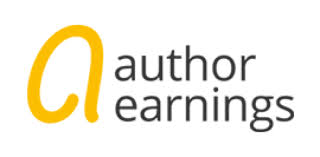
Self-published author and indie author advocate Hugh Howey turned the publishing industry on its head, not with his beat-the-odds success story that made him a household name, but for his willingness to throw open the vault of secrecy surrounding what authors of every ilk actually earn. Considered a taboo subject to the point that discussing exact book sales actually violates the terms of service of a number of ebook distribution platforms, Howey and the team at Author Earnings has been providing information that is as genuine as possible in order to help authors understand their own industry better.
A new report has been released that takes a look at how long-standing authors’ works are faring against debut authors’ titles, and the information it presents is somewhat staggering.
“We began looking more deeply at authors from two different camps: those who debuted prior to the explosion of self-publishing and those who debuted after. Authors getting their start today will of course be joining the latter camp. And we believe those authors will want to know the following:
• Big-5 publishers are massively reliant on their most established authors to the tune of 63% of their e-book revenue.
• Roughly 46% of traditional publishing’s fiction dollars are coming from e-books.
• Very few authors who debut with major publishers make enough money to earn a living—and modern advances don’t cover the difference.
• In absolute numbers, more self-published authors are earning a living wage today than Big-5 authors.
• When comparing debut authors who have equal time on the market, the difference between self-published and Big-5 authors is even greater.”
The most recent report compares what authors need to know about ebook sales in the traditional industry, to those sales among self-published authors. While print sales are an important revenue source for publishers and traditional authors, indie authors and debut traditional authors are showing an even bigger lag behind their ebook sales in terms of income.
“Total revenue from e-books is already 29% at Simon & Schuster and 34% of overall trade revenue for Hachette (40% in the UK for Hachette), making 32% a fair industry-wide estimate for the portion of trade-publishing revenue from e-books. But what does that 32% really mean for the author with a manuscript in-hand and a decision to make? It’s important for authors to understand that publisher earnings should not factor into their decision on how to publish. What we should consider foremost is how much of our earnings have gone digital. This is a difficult question to answer, but we believe we’re in a position to give a rough estimate.”
Decision making for authors who are interested in either route to publication is a daunting concept, especially since knowing that a traditional deal comes with the prestige factor of being signed, but that there are absolutely no guarantees as to how a book will fare in a crowded marketplace. Add to that the fact that even traditional publishers don’t spend nearly the advertising budget on debut authors that they put into their established breadwinners, and the decision becomes even harder.
“If the Big 5 hadn’t signed a new author since 2009, and simply released new works from their long-established authors, they would still be making 63% of the e-book revenue that they are making today. Ownership of backlist and long-tenured authors is quite clearly big publishing’s most powerful commodity. This goes a long way toward explaining ever more restrictive reversion and non-compete clauses in publishing contracts. It also lends credence to rumors that some top-name authors are already receiving ebook royalties higher than 25% of net. Publishers rely heavily on these established authors and may be willing to violate their own most favored nation clauses in an attempt to retain them.”
The full details of the report and a breakdown of all of the analyses can be found HERE.
Mercy Pilkington is a Senior Editor for Good e-Reader. She is also the CEO and founder of a hybrid publishing and consulting company.